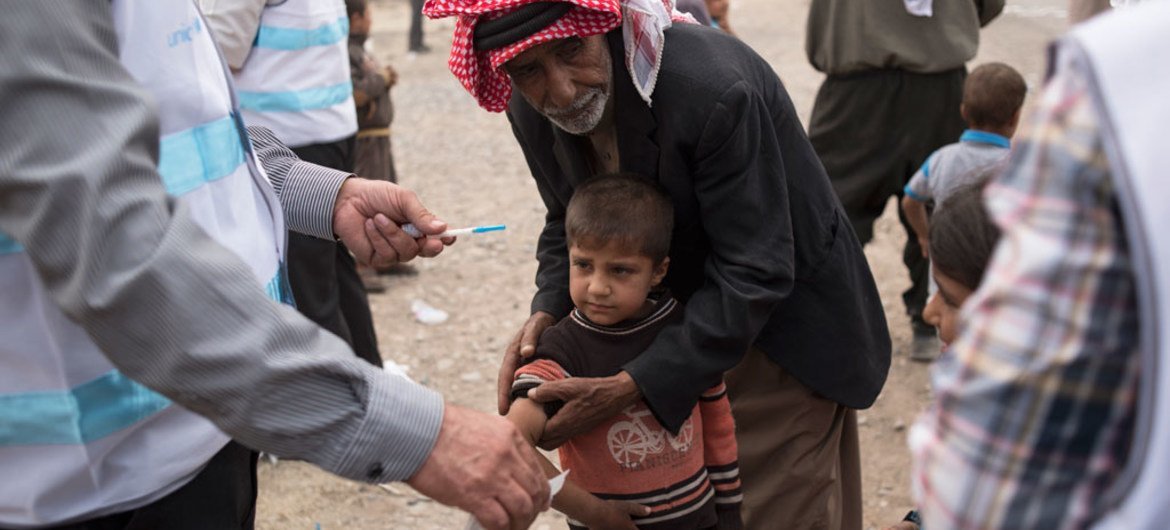
The Division for Social Policy and Development (DSPD) of UNDESA will organize an expert group meeting on "Social development and Agenda 2030" to position the Division for better supporting Member States in the implementation of the 2030 Agenda for Sustainable Development.
The objective of this meeting is to prepare DSPD for its support the work of the Commission beyond 2015 by providing a strategic framework for addressing sustainable development from a social perspective. Building on the work of the Division, including the outcomes of the expert group meeting on “Strengthening social development in the contemporary world” (May 2015, New York), the meeting will produce a set of concrete and action-orientated recommendations.
In specific, the meeting aims to:
1. Analyze the Sustainable Development Goals with a social lens, and identify options for reviewing the progress of their social dimensions in order to achieve inclusive social development objectives;
2. Identify areas that require greater policy coherence to effectively address inter-linkages and create synergies among the three dimensions;
3. Review how to address specific needs of (or how to involve) vulnerable social groups, in particular, youth, older persons, persons with disabilities, indigenous peoples, as cross-cutting issues in the implementation of the 17 SDGs, and
4. Examine how to harmonise the implementation of the SDGs with the implementation of and follow-up to existing policies and instruments related to social groups (i.e., conventions, treaties, you policy, etc.) into 17 Goals.
Background Documents
- Transforming our world: the 2030 Agenda for Sustainable Development
- Contributions of Social Development to the transition from the MDGs to the SDGs
- The Social Dimension in the Global Development Agenda Beyond 2015
- The Social Drivers of Sustainable Development
- Chair’s Summary on the social dimension in the global development agenda beyond 2015
- Chair’s Summary on “Promoting the empowerment of people in achieving poverty eradication, social integration and full employment and decent work for all”
Expert Papers
- The Role Of Families In Combating Discrimination, Violence And Harmful Practices Against Women And Girls And In Creating Greater Gender Equality And Empowerment by Bahira Sherif Trask
- Measuring Food Insecurity: Global Estimates by Nanak Kakwania
- Engagement and Communication for Implementation and Review by Minu Hemmati
- How to ensure effective integration of national institutions/mechanisms working on the disability issues as well as persons with disabilities in the implementation of the SDGs by Tiziana Oliva
- Based on lessons learnt, how to effectively mainstream disability in development and to achieve the SDGs for persons with disabilities? by Tiziana Oliva
- Making Institutional Complementarity for Equal Opportunity and Equalities of Outcomes by Ilcheong Yi
- Income Inequality and Social Well-Being by Hyun H. Son
- Promoting participation as a means to build inclusive societies by John Mathiason
- Creating an Inclusive Society: Evidence from Social Indicators and Trends by Roberto Foa
- Promoting productive employment and decent jobs: what should be done about informal employment? by Gordon Betcherman
Expert Presentations
- Enhancing the labour participation of women: Work- family balance and unpaid work by Bahira Sherif Trask
- Poverty and Food Security: Global Estimates by Nanak Kakwani
- Leave no one behind: Social Protection for All by Vinicius Pinheiro
- Investment in the Human Capacities and the Social Capital in Sub-Saharian African Perspective of Equity face the Challenges of Poverty and Security by Fatou Sarr
Useful Documents
- Social Inclusion, Poverty Eradication and the 2030 Agenda for Sustainable Development by Esuna Dugarova
- Indigenous Peoples and Agenda 2030: Working paper by Elsa Stamatopoulou
 Welcome to the United Nations
Welcome to the United Nations